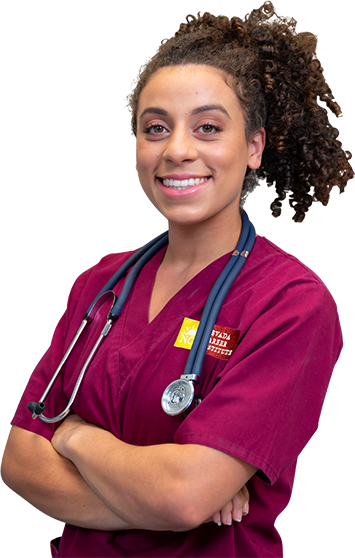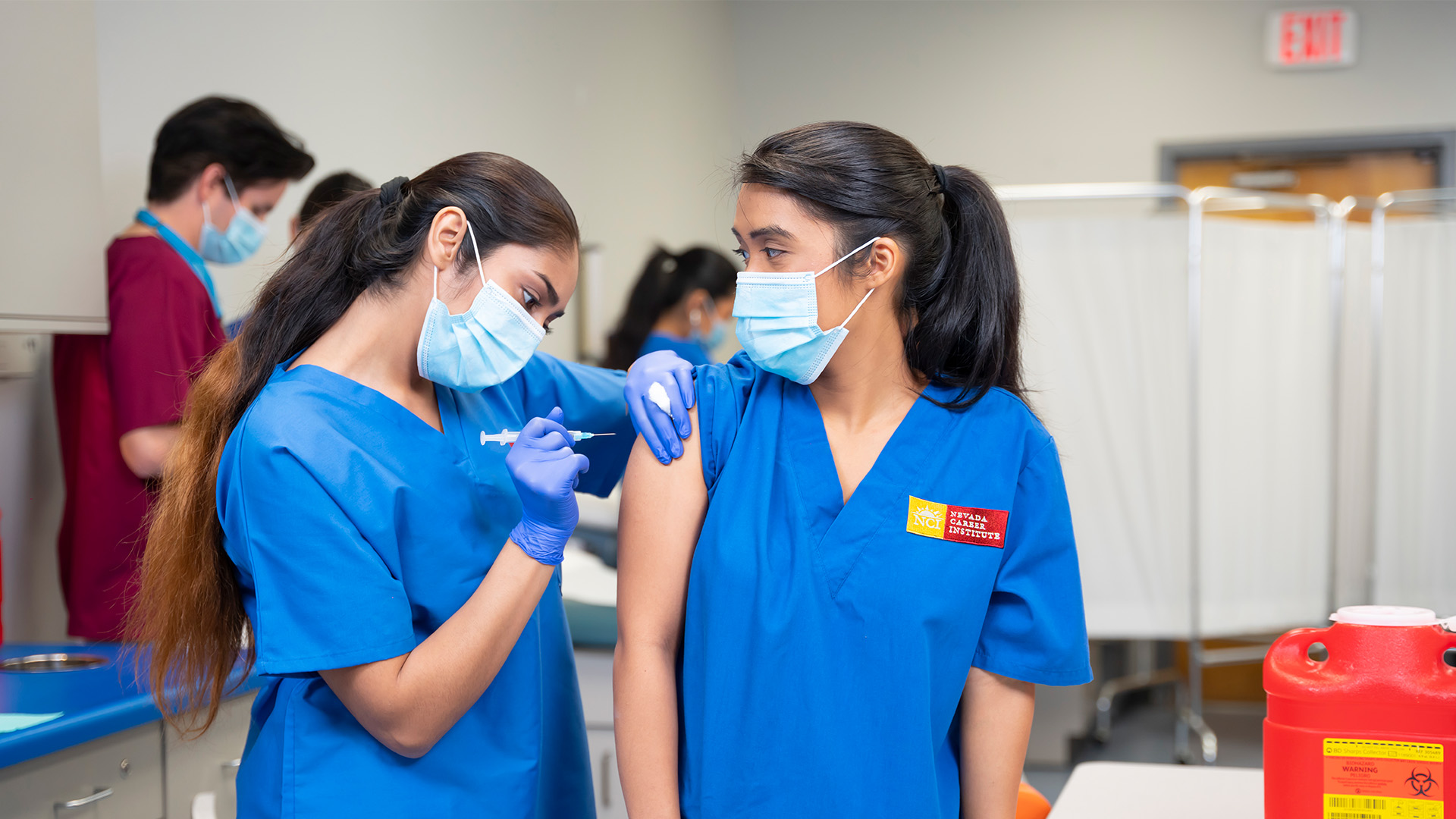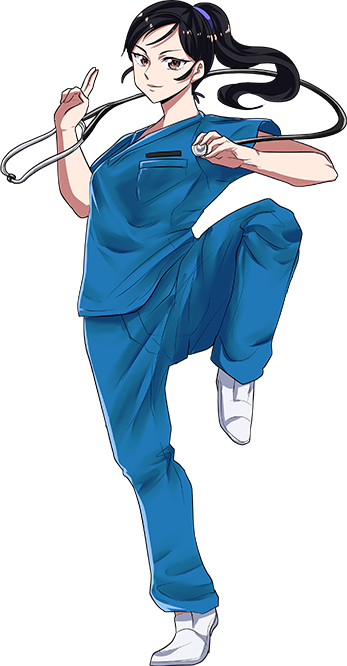Medical Assistant
Medical Assistants are trained allied health care workers who perform routine tasks and procedures to support the work of physicians and other health care professionals.
The Medical Assistant program at Nevada Career Institute can provide you with the education and training you need to begin working in health care or medical offices, medical clinics, doctors’ offices, HMOs, rehabilitation centers, hospitals and other health care facilities.
Learn how you can train to become a Medical Assistant at Nevada Career Institute.
New classes are enrolling now!
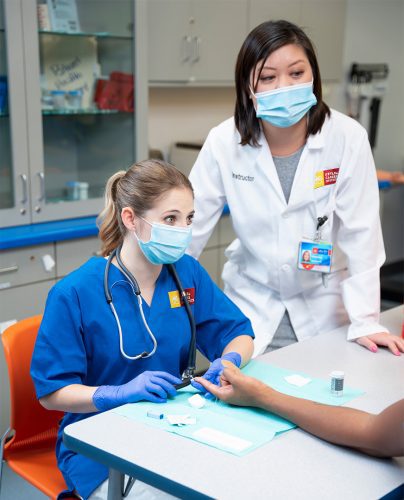
Medical Assistant
Request Information
Fill out a very short online form and one of our admissions representatives will reach out to you and answer all of your questions.
Apply Online Now!
Ready to make your decision now? You can apply now online in under a few minutes.
Schedule a Tour
Come and see us in person! Talk to your future instructors, meet your future classmates and get familiar with your new home.
Medical Assistant Overview
Medical Assistants perform administrative and clinical tasks to support physicians, registered nurses and other health care professionals in medical offices, clinics, hospitals and other health care facilities.
Medical Assistants routinely perform a variety of important tasks, including:
The Medical Assistant program at Nevada Career Institute equips students with the knowledge and training they need to start working in a health care or medical office, including medical clinics, doctors’ offices, HMOs, rehabilitation centers, hospitals and other health care facilities.
*Nevada Career Institute is not able to guarantee employment.
Proudly accredited, licensed to operate and/or recognized by the following institutions:

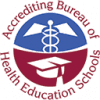

Questions?
Let us help you launch your career by contacting us today. Simply fill out our contact form or call us at 702.209.0030
Classes are starting soon!
Medical Assistant Careers & Work Environment
The Medical Assistant program at Nevada Career Institute provides the education and training needed to begin a career working in a variety of different medical and health care facilities.
Graduates of the program routinely find jobs working in:
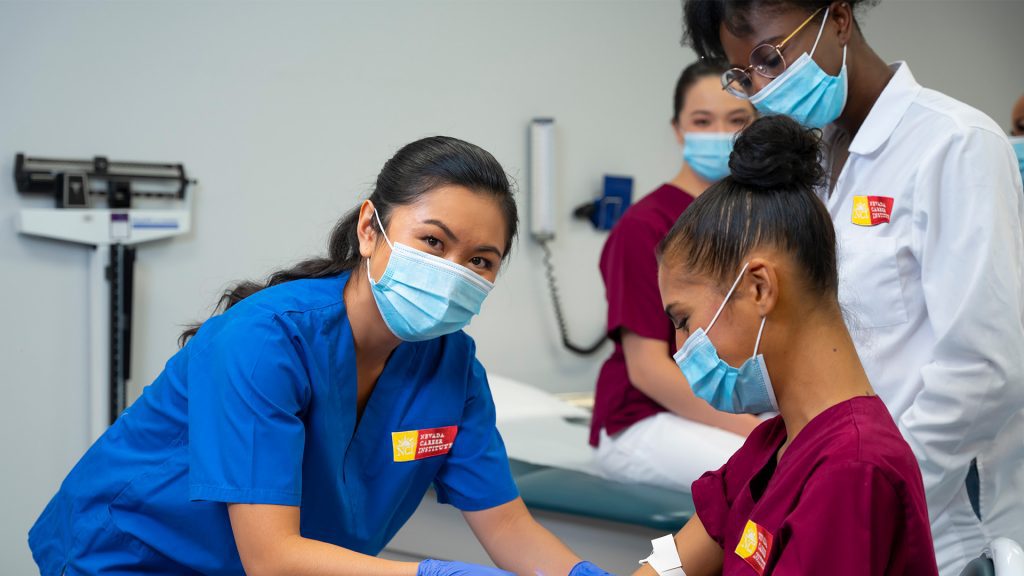
Quick Facts about Medical Assistants
Nevada Career Institute cannot guarantee employment.
Medical Assistant Course Material
The Medical Assistant program is divided into eight class modules, along with a 160-hour externship, where students apply the skills they learn in the classroom in an actual health care practice setting. The Medical Assistant program will offer students the opportunity to obtain the knowledge, skills, and techniques needed to function in the medical office or outpatient clinic. The student will receive cognitive laboratory and clinical instruction in administrative and clinical office procedures, medical laboratory tests and procedures, human anatomy, medical terminology, patient psychology, medical ethics, medical law, and pharmacology.
Seminar for Success
Orientation and success building course for Career Students. Review of basic math, language, vocabulary, and writing skills. Introduction to core career classes, availability of community resources, outlining, summarizing, managing credit, and other life skills. Outside preparation and study time, in addition to regular classroom activities, is required to complete the class assignments. The type of outside preparation may take the form of homework assignments, projects, reading, and required studying.
Medical History and Fundamentals
This course provides an overview of the roles and responsibilities of the medical paraprofessional and an introduction to medical specialties and subspecialties. This course introduces the student to the structures and functions of the human body. Topics include the history of medicine, the health care team and office environment, interpersonal communications, medical law and ethics, basic keyboarding, and medical terminology. Outside preparation and study time, in addition to regular classroom activities, is required to complete the class assignments. The type of outside preparation may take the form of homework assignments, projects, reading, and required studying.
Medical Office Administration
This course will introduce students to the basic procedures of the daily management of a medical office. Activities and simulation exercises related to practice management are provided throughout the course. Topics covered include telephone techniques; appointment scheduling; word processing projects including resumes and cover letters; insurance claims processing; constructing and managing patient records; medical office management software; and basic keyboarding. Outside preparation and study time, in addition to regular classroom activities, is required to complete the class assignments. The type of outside preparation may take the form of homework assignments, projects, reading, and required studying.
Anatomy & Physiology A
This course will focus on the respiratory and circulatory systems. Students will learn a variety of patient-care skills such as Venipuncture, ECG testing, and specialty exams. Students will practice skills introduced in this course through laboratory exercises. Outside preparation and study time, in addition to regular classroom activities, is required to complete the class assignments. The type of outside preparation may take the form of homework assignments, projects, reading, and required studying.
Anatomy & Physiology B
This course will focus on the lymphatic, immune, digestive, urinary and nervous systems. Students will learn related laboratory skills such as urinalysis and microscope use. Students will practice skills introduced in this course through laboratory exercises. Outside preparation and study time, in addition to regular classroom activities, is required to complete the class assignments. The type of outside preparation may take the form of homework assignments, projects, reading, and required studying.
Anatomy & Physiology C
This course introduces the student to the male and female reproductive systems, and the endocrine, integumentary, sensory, and muscular and skeletal systems. Students will practice skills introduced in this course through laboratory exercises. Outside preparation and study time, in addition to regular classroom activities, is required to complete the class assignments. The type of outside preparation may take the form of homework assignments, projects, reading, and required studying.
Medical Assisting Skills
This course introduces students to basic pharmacology and dosage calculation. Students will assist with medications, injections, and minor surgical procedures. The introduction of related practical skills such as surgical instruments and tray sets, medical asepsis, and sterile gloving are included in the course. This course covers behaviors influencing health, stress reduction, time management skills, and introduces alternative related therapies. Students will practice skills introduced in this course through laboratory exercises. Outside preparation and study time, in addition to regular classroom activities, is required to complete the class assignments. The type of outside preparation may take the form of homework assignments, projects, reading, and required studying.
Medical Assisting Skills and Response Training
This course introduces the students to office emergencies and first aid techniques. Basic Life Support training for the health care provider gives students the opportunity to become CPR certified. Students will practice skills introduced in this course through laboratory exercises. Students will discuss beginning their job search. Outside preparation and study time, in addition to regular classroom activities, is required to complete the class assignments. The type of outside preparation may take the form of homework assignments, projects, reading, and required studying.
Clinical Externship
Upon successful completion of classroom training, medical assisting students will participate in a supervised 160-hour externship experience in medical setting. This course is a requirement for graduation.
Medical Assistant Course Activities
A graduate of the Medical Assistant Program may be employed by a physician, hospital, medical and diagnostic laboratories, nursing care facilities, or outpatient facility. Employment opportunities can be found in the front office environment such as word processing, medical transcribing, admitting clerk, intake personnel, receptionist, medical records clerk, and other medical administrative procedures. Opportunities in the back office environment may include laboratory procedures such as venipuncture and other laboratory testing, preparing patients for examination, conducting diagnostic tests, and assisting with minor surgeries.
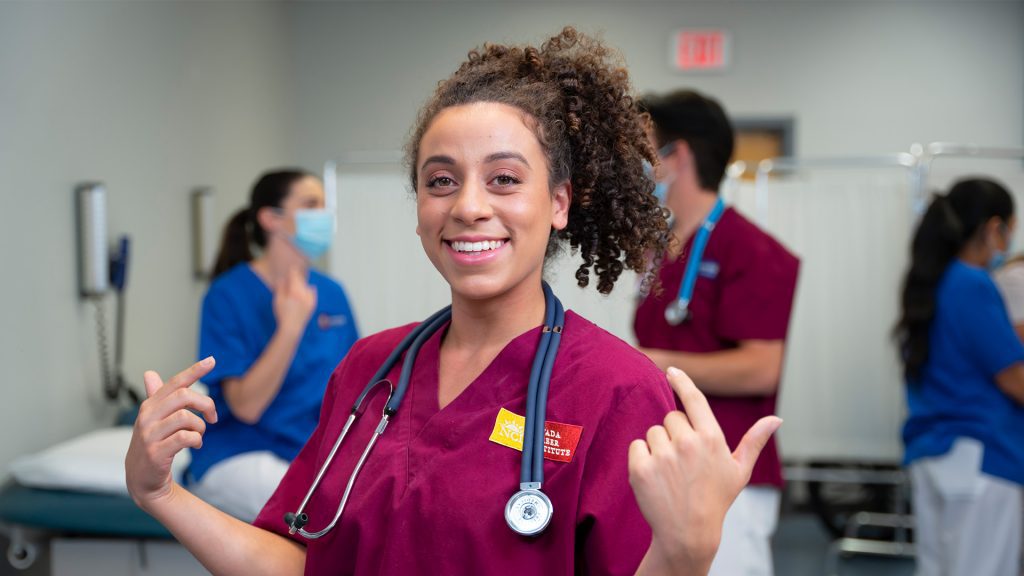
Medical Assistants typically perform the following tasks:
Nevada Career Institute cannot guarantee employment.
